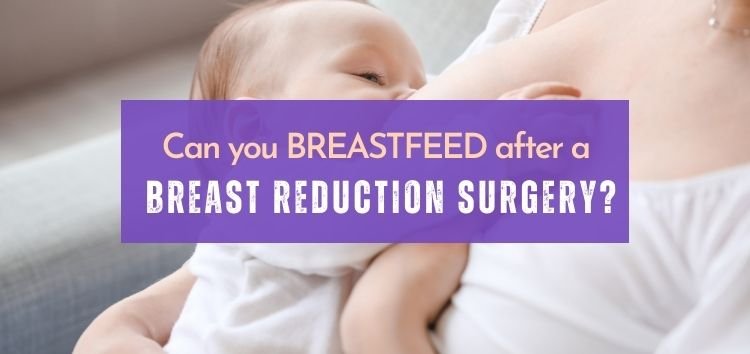
Can you breastfeed after a breast reduction surgery? Ask your Plastic Surgeon
Each year, thousands of women go for Breast Reduction Surgery all over the world, and this procedure is increasing each year. If we consider these statistics by ISAPS, the worldwide total number of Breast reduction surgeries performed in 2021 was 507,363, compared to 426,363 surgeries performed in 2020. That means it increased by 19.0%. (Percent Change: 2021 vs. 2020)
In India, the total number of breast reduction surgeries performed in 2021 was 15,240.
And many women go for these surgeries after pregnancy, so they have many questions regarding the surgery, and the most important question in her mind is whether she can breastfeed after the surgery.
So as a Plastic surgeon, it is my responsibility to clear your confusion.
First you need to understand,
What is Breast Reduction?
Breast Reduction also known as reduction mammoplasty, is a surgical procedure to reduce the size of the breasts. Extra skin, fat and glandular tissue are removed from the breasts during this surgery.
For More Detail, you can Read here: Breast Reduction Surgery in India
What are the reasons for having breast reduction surgery?
- Neck/shoulder discomfort
- Changes in posture
- Infections below the breasts
- Inability to wear desired clothing
- Lack of self-assurance
Would Breast Reduction Affect Breastfeeding in future?
A properly performed breast reduction by a trained plastic surgeon will not result in any negative impact on future breastfeeding. We preserve the connection of the nipple areolar to the breast tissue and gland under it to allow for adequate breast milk production and breastfeeding by the woman in the future.
Here are some points to consider if you are wondering about breastfeeding after a breast reduction surgery:
Surgical Technique: In my OT practice, the Superiomedial pedicle Vertical Breast Reduction surgical technique used for the breast reduction can help in the preservation of milk ducts and nerves better.
Extent of Tissue Removal: If a significant amount of breast tissue is removed, there may be fewer milk-producing glands left, which could affect milk supply.
Nipple Sensation: Loss of nipple sensation after surgery could make breastfeeding more challenging, as the nerves responsible for triggering the milk ejection reflex may be affected.
Scar Tissue: Scar tissue from the surgery could potentially affect milk flow and ducts.
Individual Variation: Every woman’s body is different, and some may have a more favorable outcome in terms of breastfeeding after breast reduction.
Lactation Support: If you’re considering breastfeeding after breast reduction, working with a lactation consultant or breastfeeding specialist is highly recommended. They can provide guidance, support, and strategies to help maximize milk production and overcome potential challenges.
Supplemental Feeding: In some cases, even if breastfeeding is possible, you might need to supplement with formula or donor milk to ensure your baby is getting enough nourishment.
How long after Breast Reduction can I Breastfeed?
Breast reduction is not performed on a woman who is already breastfeeding or is lactating or is pregnant.
After the breast reduction surgery, the breasts will take around 5 to 6 months to heal, after which patient can follow normal pregnancy routine.
Conclusion:
It’s important to have a candid discussion with your plastic surgeon before the breast reduction surgery about your desire to breastfeed in the future. They can provide insights into the potential impact of the surgery on breastfeeding.
Meet Breast Reduction Surgeon in India
Dr. Chugh is the Director of the CK Birla Hospital’s Plastic and Aesthetic Centre in Gurugram (Delhi NCR). He is India’s leading plastic surgeon, having a global clientele.
Dr. Chugh has over 13 years of experience in the field of aesthetics and provides a holistic approach based on the needs of the patient. In his pursuit of greatness, he graduated from New Delhi’s famed Maulana Azad Medical College and went on to complete his Masters in General Surgery at the same institution. He then completed his M.Ch in Plastic and Reconstructive Surgery at one of India’s best institutes, Safdarjung Hospital in New Delhi.